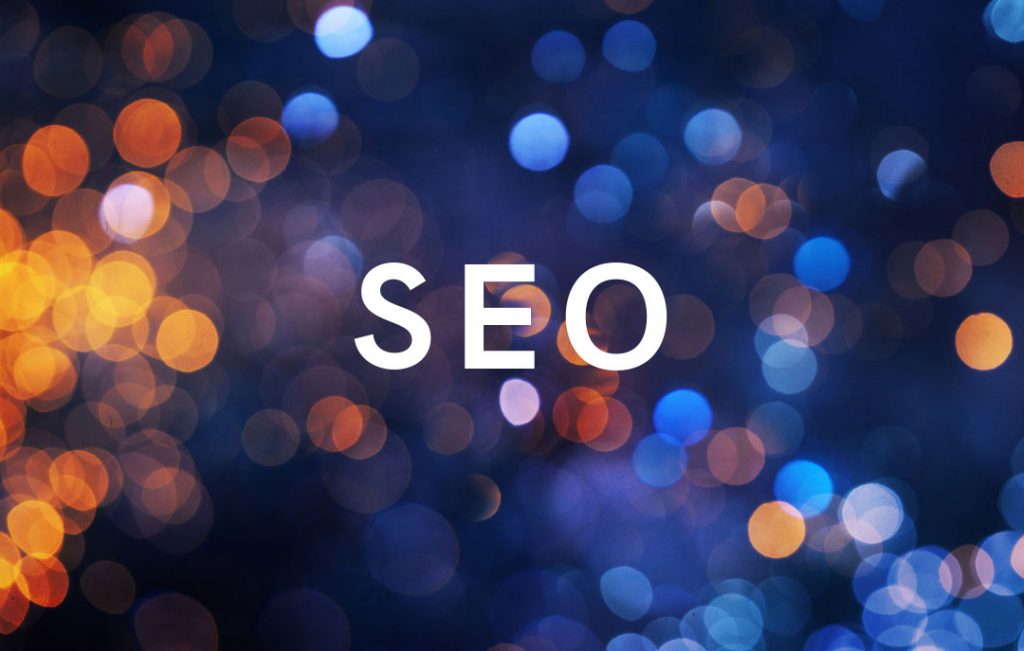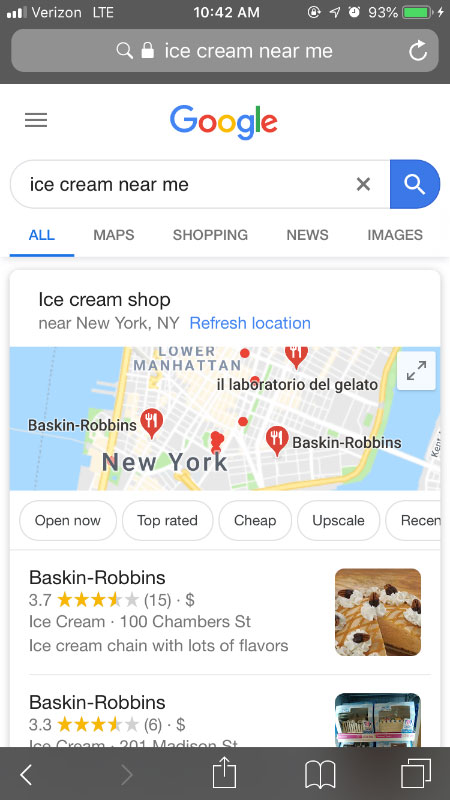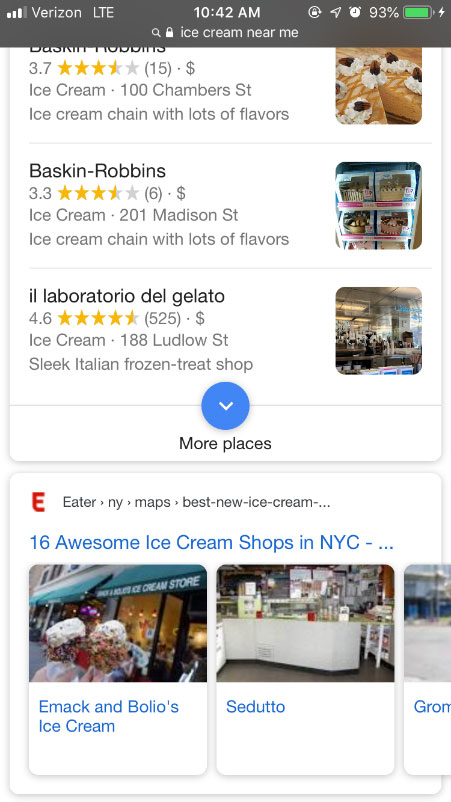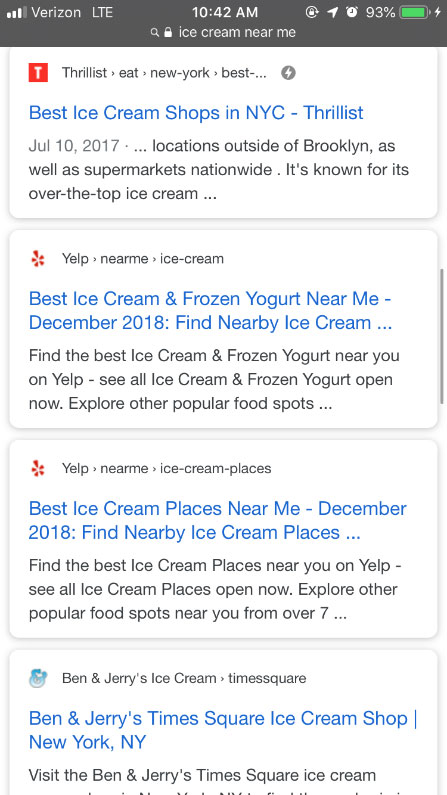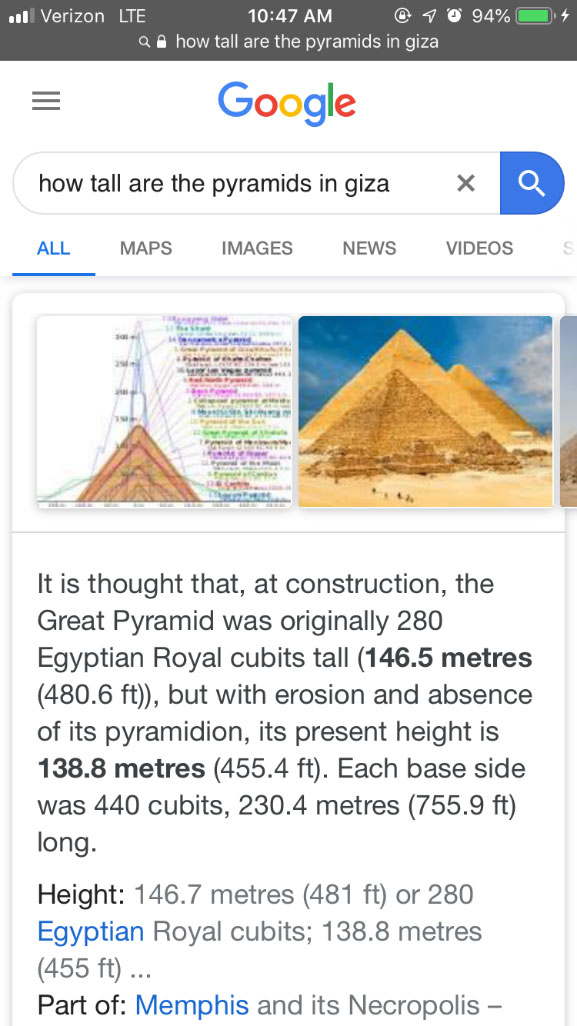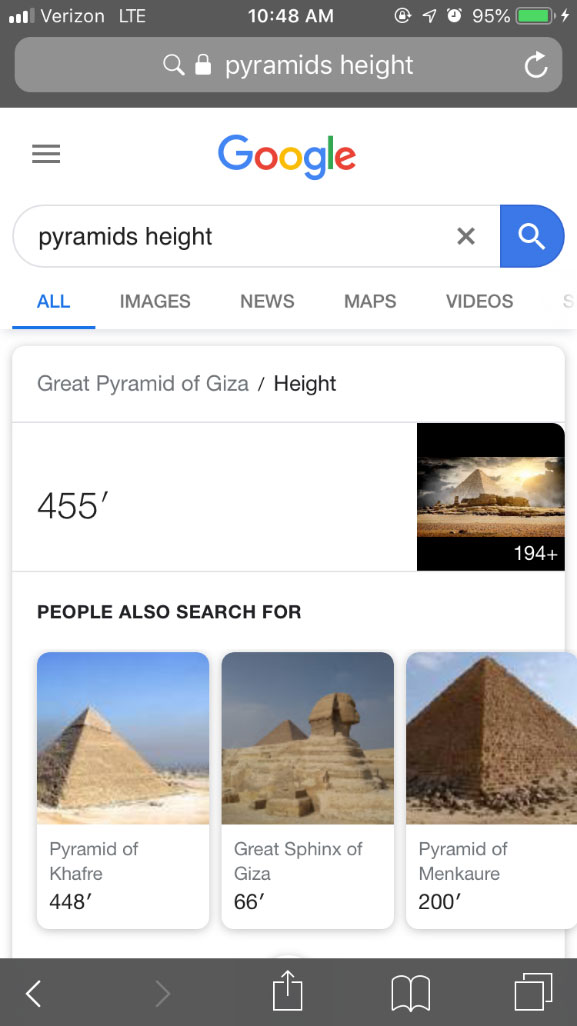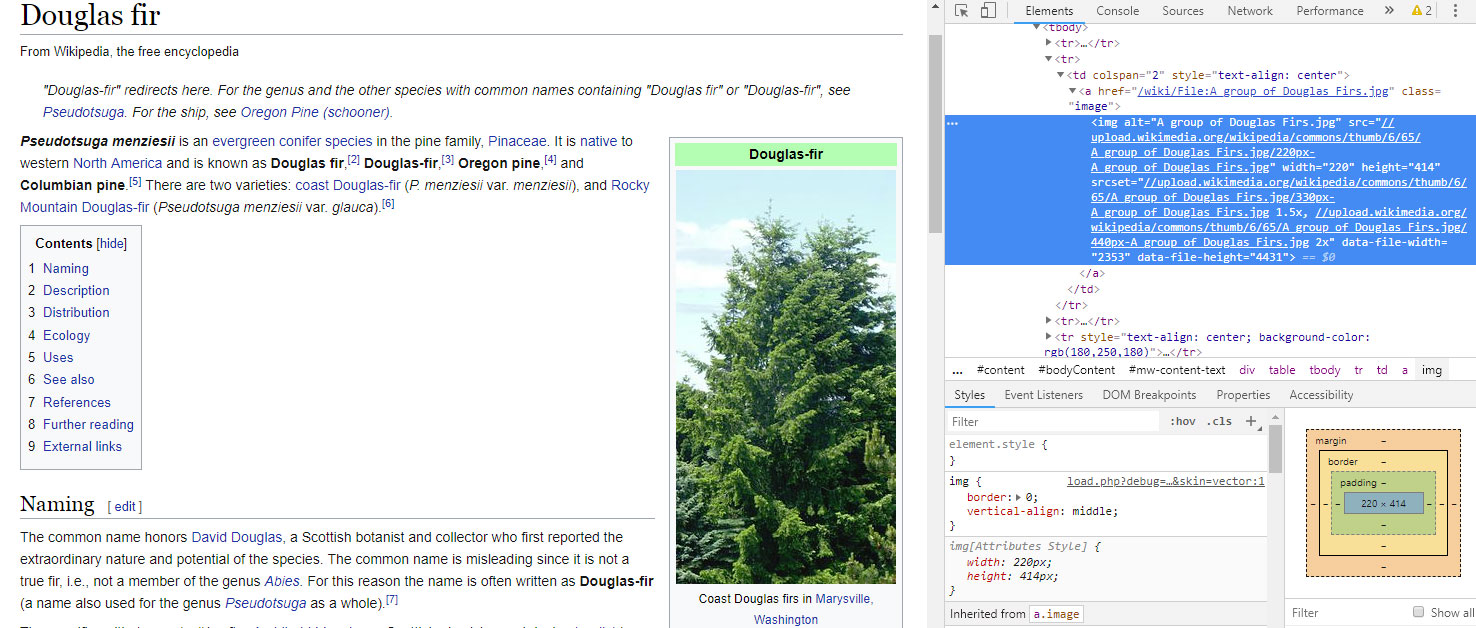In 2019, if you’re only optimizing meta data and loading keywords onto your pages, you’ll be left in the dust by SEO companies pushing the envelope to give search engine crawlers the data they need to bring their sites to the top. Though tried and tested tactics should not be pushed aside entirely, Google has given us some insight into what is going to set sites ahead of others in 2019. We expect to see a shift in the following areas:
- Optimizing your site for users on mobile devices
- Breaking into position zero on search engine results pages (SERPs)
- Machine learning and natural language search
- Optimizing your site for visual elements
These changes are possible through innovation on Google’s part, as their algorithms are improved by artificial intelligence. What’s driving these changes are the devices we’re using to search, namely with our mobile devices and smart speakers.
Mobile is king
Each year the number of searches done on mobile devices increases, chipping away at searches done on desktops. Right now, about 60% of searches are done on mobile. To encourage website developers to adapt to this change in the way people access search engines, Google will be adopting a mobile-first index. Eventually, Google will index the mobile version of a site’s content, as well as structured data and display snippets in search results. The future of what search engines will rank lies in cross-device responsive design, and this all stems from creating the best end user experience possible.
Notice how Google displays these results – the first items are map listings, the most relevant thing users are likely searching for; they’re also extremely visual. As you scroll, listings are text-based. Which would you click? Of course, the map listings, and then maybe the carousel of images below. Google is all in on user experience.
Another aspect of why you’d want to optimize your site for mobile is the simple fact that our mobile devices are smaller, displaying a smaller amount of real estate at first glance after search results load. Often users don’t scroll to the bottom of the first page of results because a featured snippet or text ad might generate the answer to the query they were looking for. Recently, searches for phrases that included “near me” with a variant of “to buy” has increased 500%. Having your map listing show up towards the top of search results on someone’s mobile device can generate significantly more leads for your business.
Breaking the 10-spot mold
As Google moves toward a mobile-first index, the 10-spot SERP may soon fade into obscurity. Finding yourself in “Position Zero” as a featured snippet prominently displays the information on your website in search results. Being in this position means your content is put in front of far more people, though if their question is answered completely, it may not always translate into a deluge of traffic to your site. Structured snippets are answers appearing as a paragraph, list or table. On a mobile device, this could bury organic results below the fold of its smaller screen.
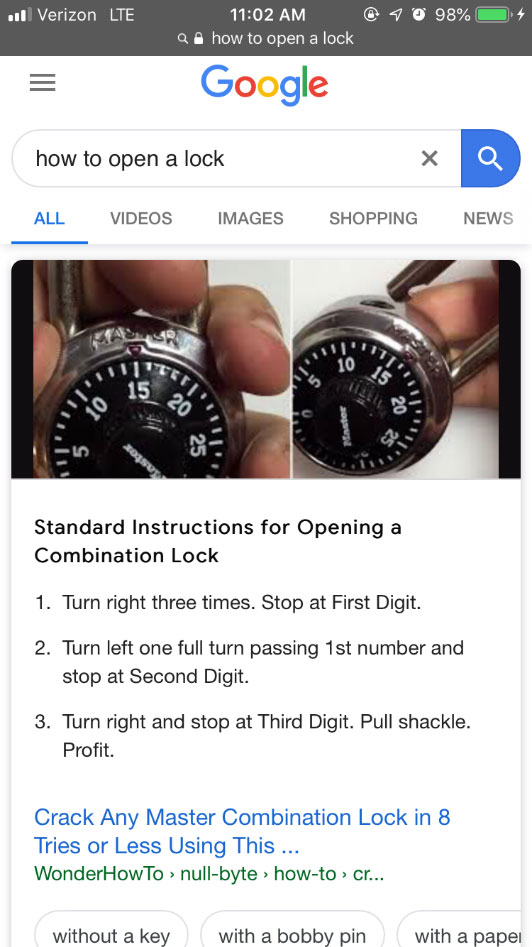
This page organically ranks third on this particular SERP, but on a mobile device may get the highest click through rate because of the fact that it’s a featured snippet in list form.
So how do you optimize your sites pages to rank in position zero? Always keep in mind what the simplest way to answer the user’s query would be. Our first inclination might be that the answer to a question would be in the conclusion, but often, people aren’t reading to the end of an article to find their answer. Answering the question directly before the fold in about 50 words is thought to give search engines the content they need to present that information in a featured snippet.
Machine learning, Artificial Intelligence, and voice search
Hand-in-hand with optimizing your content for snippability is the way people are using search engines, namely how they are asking questions. Thinking back to the days of “Ask Jeeves”, people used natural language search to find their answer. When Google’s prominence rose, searches looked more like the shorter keywords we see today, such as “SEO tips for 2019” vs “how to optimize your site for 2019”. Now, as Alexa, Cortana, and Siri are answering our questions we speak to them, we’re getting re-accustomed to natural language search. In 2019, it’s possible that content with a more conversational tone will be successful in SERPs.
As you can see from the screenshots above, a wordier search resulted in a paragraph-long featured snippet. A more simplistic search resulted in a clear and concise answer – again we see user experience at work. Something further to consider is that a person who sees the result on the left may have a higher propensity to investigate and read on than the user on the right who might take this answer at face value. The left would likely generate a higher click through rate than the other.
Aside from a rise in natural language search as a result of smart speakers, we expect to see innovation in the field of machine learning as a subset of artificial intelligence. Since Google purchased DeepMind in 2014, they’ve been ramping up efforts to leverage AI in returning the best results from their algorithm. What this means for SEO is that we need to rely less on meta data and more on user experience. Yes, your images should be optimized (we’ll go into this in depth next), your H1 text should include a keyword and you should have a great meta description, but at the end of the day, machine learning is getting closer and closer to determining what humans want to read and what answers their queries best.
Image and video optimization
Cameras are no longer used to just take pretty pictures, and in fact, the technology behind the lens has become something extraordinary. With Google Lens, you can point your phone at over one billion items, and with the assistance of AI and Google, you will be able to find more information about it. Everything from dog identification to finding a similar backpack online to one you saw someone wearing – Google Lens is an interesting new feature that is projected to grow in popularity in the coming years.
Aside from the incredible features through Google Lens, search in general is getting more visual. Images are ranking in position zero, and we are spending less time reading, and more time getting information at a glance. To leverage this trend, you’ll want to make sure the images being used on your site are:
- High quality – again, think of user experience.
- Not too large – large images can slow down page load time, which often leads to an increased bounce rate.
- Optimized with alt-text – this is not only good for search engines, but also for those with limited vision. Describe the photo in depth, and make sure it is keyword rich.
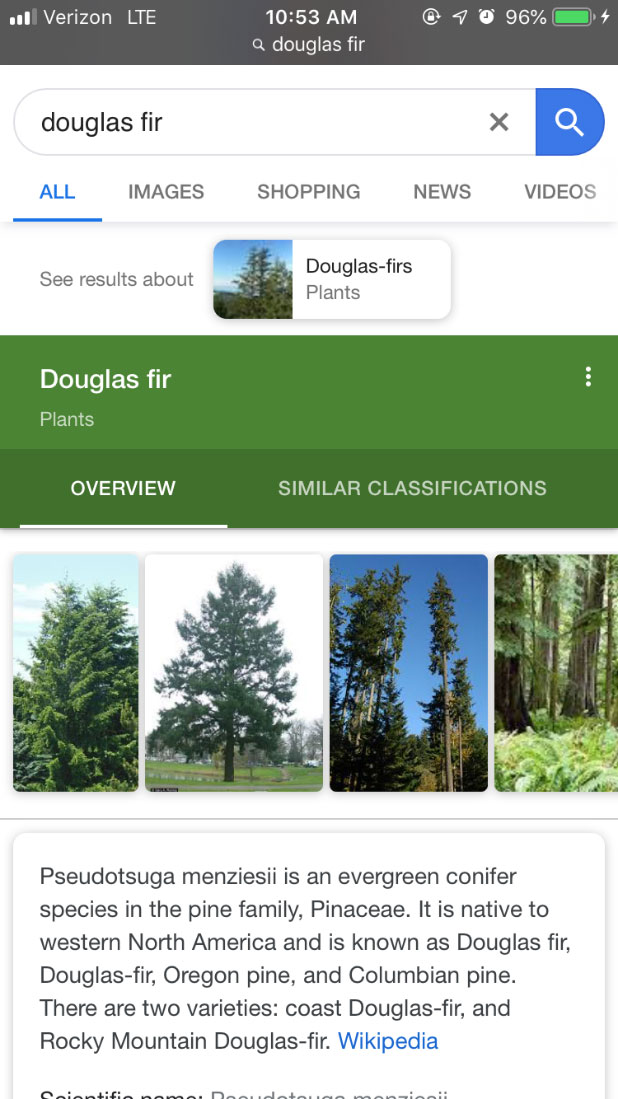
Note the size and alt-text of the top-ranking image for Douglas fir is only 220 by 414 pixels.
Not only images are important to optimize, but video and audio are getting easier for search engines to understand with the rise of machine learning. Just as text content is optimized, so too should video, since Google-owned YouTube often ranks in SERPs. Including captions, relevant titles, and finding the right video length for your audience can all contribute to helping a video rank in search results.
Conclusion
Whether you’re effectively anticipating the changes that will affect the way search engines rank your content, some of your competitors will. Ranking for top searched keywords is not as simple as it was years ago. SEO companies have to take these changes seriously in the websites they are building and in the content they are optimizing. Until any of these predictions come to fruition, we’ll have to watch and learn as algorithm updates roll out.


